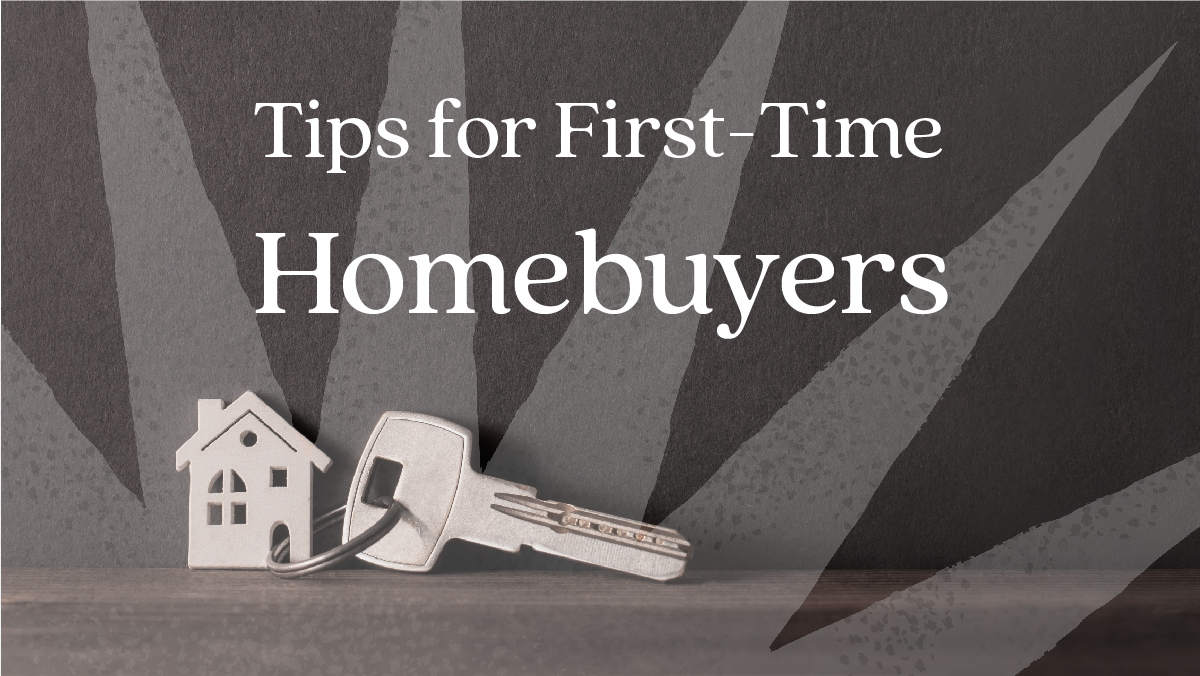September 20, 2021Tips for First-Time Homebuyers
Buying your first home can seem like a daunting task. Between figuring out your budget, considering various neighborhoods, and being shown multiple properties, finding the perfect home can be time-consuming and exhausting. But the truth is, if you know what to expect from the first-time home-buying process, you’ll have a much easier time!
Since buying your first home is one of the most important decisions of your life, we’ve decided to put together a handy guide for you. In this guide, we’ll help you better understand what to expect, what costs are involved and offer some useful tips. Here’s everything you need to know about buying your first home:
Who is Considered a First-Time Homebuyer?
A first-time homebuyer usually falls under one of the following criteria:
- A person or couple who has never owned a home before.
- A person who owned a home with their former spouse and is now divorced and looking to buy their own home.
What to Consider Before You Buy a Home
Some of the first things to consider are your long-term goals and how owning a home will fit into those plans. For example, some first-time homebuyers just want to stop “wasting” money paying rent every month and prefer to replace rental expenses with a mortgage payment instead, giving them something they own for themselves. Others may see homeownership as a more independent way of living since they don’t have to abide by a lease. There are also people who just want to buy their first house to repair, upgrade, and sell it. Regardless of your reasons for wanting to buy a home, here are some questions you should ask yourself:
What type of home will best suit your needs and lifestyle?
When buying a home, you have several property types to choose from, including traditional single-family homes, townhouses, condos, co-ops, duplexes, or multi-family buildings (with 2-4 units). Each has its own pros and cons, depending on what is important to you. Weigh your options and find out which works best. If you are ‘handy,’ you may even search for a fixer-upper to save money then invest time and money to turn it into your dream home.
What Are Your Must-Haves?
It’s important you stay flexible while shopping for your first home. However, you also need to decide what your needs and wants are and which of them are absolutely non-negotiable. For example, if you have children or plan to have them, you should make sure your home is in a good school district. Or maybe you want an open layout and are unwilling to invest the time and money to remodel a home that doesn’t have an open floor plan. Settle on what is most important to you and keep that in mind when shopping around.
How much mortgage do you qualify for?
Before you begin the home-shopping process, it’s important to know how much mortgage you qualify for. There are a few things lenders take into consideration when deciding how big your loan will be, such as how much other debt you have, your credit score, how long you’ve been at your current job, and your monthly income. Having a 20% down payment ready in hand will also help get you approved for an acceptable home loan.
Make sure you’re preapproved for a loan before placing an offer on a home. Some sellers won’t even consider offers sent without a preapproval. Be sure you are preapproved, not pre-qualified. Pre-Qualified just means a lender gave you an idea of what you could afford based on the basic information you gave them. A preapproval is when you give all of your financial information to a lender, and they approve you for the mortgage and provide a set dollar amount to spend.
How much home can you afford?
First off, just because you’re preapproved for a $350,000 loan doesn’t mean you should borrow that much. Do the math! How much of your income will go into your monthly mortgage payment? Do you have enough money left to live comfortably? Do you have enough saved up for emergencies? You never know when unexpected things will happen (for example, natural disasters, leaks, etc.). Many first-time homebuyers make the mistake of over-borrowing and end up “house-poor,” barely scraping by and left unprepared for unexpected expenses.
Secondly, you’ll need to have about 20% of your total home loan ready as a down payment. This will help you avoid PMI (private mortgage insurance) and will also help you lower the total interest you’ll have to pay overtime on your home. You’ll also need to consider how high your property taxes are based on the home’s neighborhood, how much insurance you’ll be paying, how much your closing costs will be, and how much you expect to pay to maintain or improve your home. If you plan on buying a condo or a townhome, you will be a part of a homeowner’s association, which means you’ll have to pay monthly maintenance costs.
Who is going to help you find a home and guide you through the purchase process?
Some individuals may choose to do all of this on their own, although you may want to go with a real estate agent when it comes to buying your first home. They will be able to find homes that are within your price range and meet your needs. Realtors will guide you through the entire process, from finding the right home to closing. They will also prove invaluable when answering your questions, pointing things out about the home you may miss, and being knowledgeable about the local schools and community.
The Home-Buying Process
Now that you’ve decided to move forward and buy a home, let’s discuss what you can expect from the home-buying process. Here’s how it usually works:
- Secure financing – Before finding your dream home, make sure you’ve been preapproved for a mortgage and have the funds needed for the down payment and other expenses (such as property tax, closing costs, etc.).
- Find a home – You’ll likely visit a few different houses, check out the neighborhoods, and ask your friends and family if they know of any nice homes for sale. If you’re working with a real estate agent, make sure they have a list of your requirements along with your budget.
- Make an offer- Once you have been preapproved for a mortgage and have found your dream home, you will need to put in an official offer on the house. If you are working with a real estate agent, they will handle the negotiations. The seller will either accept your offer, turn down your offer (because a competing offer closed the deal), or will respond with a counteroffer, which you can accept, or keep negotiating until a deal is reached.
- Obtain a home inspection – Even if the home seems perfect, it’s important to have a trained professional inspect the property. They will be able to verify that the house is in good shape and has no safety issues. This will ensure you don’t get stuck with any problems your seller did not disclose (often because they don’t even know about the issues). If there is an issue, you can get an estimate and either get a discount on the price of the home or revoke your offer on the home, unless you’re buying it in “as is” condition.
- Close – If everything goes well with the inspection and the seller accepts your offer, you will be ready to close. This involves signing a lot of paperwork, committing to the mortgage, and hoping no issues will occur before the closing is completed.
Once you’ve bought a home, you’ll need to make sure you pay your mortgage on time and enjoy personalizing your new home!
We’re Here to Help!
Buying a home is a big financial decision. We’re ready to walk you through the entire process, get you preapproved, and answer any questions you have. To get started, stop by or give us a call at 1-800-226-6673.
Each individual’s financial situation is unique, and readers are encouraged to contact PEFCU when seeking financial advice on the products and services discussed. This article is for educational purposes only; it does not constitute legal advice. If such advice or a legal opinion is required, please consult with competent local counsel.


